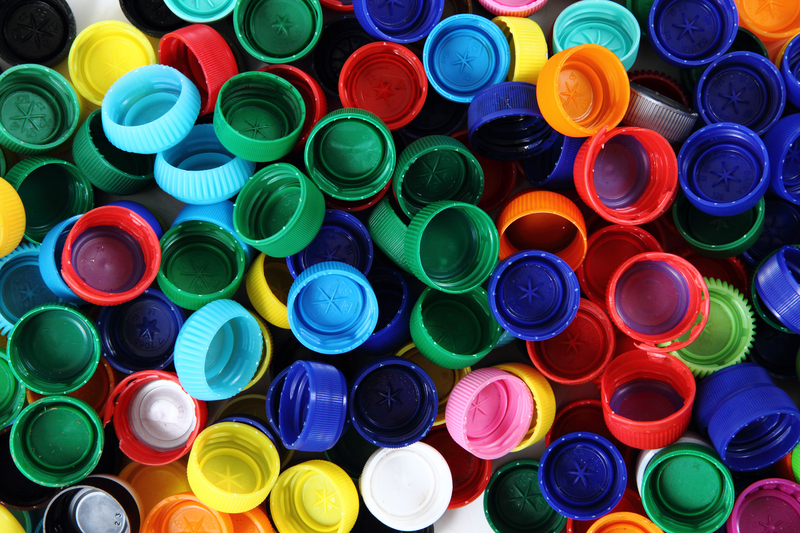Strengthening School Communities with Recycling Drives
In today's environmentally-conscious world, fostering both community involvement and sustainability within educational institutions is essential. One of the most impactful ways to achieve this is by organizing school recycling drives. These initiatives not only help reduce waste but also unite students, staff, and local neighborhoods around a common cause. In this comprehensive guide, we'll explore how recycling initiatives in schools can strengthen communities, boost environmental awareness, and foster a sense of responsibility in young minds.
Why School Recycling Drives Matter
The importance of recycling extends beyond just waste management--it's about creating a culture of responsibility and collaboration. Recycling campaigns in educational settings provide multifaceted benefits:
- Environmental impact: Reduced landfill waste and conservation of natural resources.
- Educational opportunities: Hands-on experiences and real-life teaching moments related to sustainability and science.
- Community engagement: Collaboration among students, parents, teachers, and local organizations.
- Social development: Cultivates teamwork, leadership, and a sense of accomplishment.
The Role of Schools in Promoting Recycling Efforts
Schools play a pivotal role in shaping future generations. By making recycling drives for students a regular part of school life, educational institutions fulfill their responsibility not only in academics but also in social and environmental stewardship.
- Setting examples: When students witness their educators, peers, and local organizations participating in environmental action, they are more likely to develop lifelong green habits.
- Creating leaders: Organizing a recycling campaign provides opportunities for students to take initiative, plan events, and work towards collective goals.

How Recycling Drives Strengthen School Communities
A recycling drive in schools is far more than a waste collection event--it's a catalyst for building stronger, more connected school communities. Here's how these programs translate into tangible community benefits:
1. Fostering a Common Purpose
When a school launches a recycling initiative, everyone gets involved--from the principal to the youngest student. The shared mission of making a positive environmental impact creates unity.
- Teamwork: Students, staff, and parents work together, strengthening bonds and building trust.
- Inclusivity: Recycling drives often involve everyone, regardless of age or background, ensuring a sense of belonging and involvement.
2. Developing Environmental Awareness
Participating in a school recycling event offers an engaging way for students to directly observe the impact of their choices. Schools that implement these drives often see increased interest in environmental clubs, green curriculum, and sustainable behaviors both inside and outside of school.
- Hands-on learning: Students gain practical knowledge about sorting waste, the recycling process, and its environmental benefits.
- Awareness campaigns: Accompanying the recycling drive with posters, videos, or school assemblies amplifies its impact.
3. Building Leadership and Responsibility
Students often take the lead in planning and executing school-based recycling campaigns. This helps build critical life skills.
- Project management: Older students can take responsibility for logistics, communication, and outreach.
- Communication: Explaining the importance of recycling to peers and family develops public speaking and advocacy skills.
4. Strengthening Partnerships with the Local Community
Recycling drives are a great opportunity for schools to reach out to local businesses and organizations for support, donations, or participation.
- Business involvement: Local companies may sponsor bins or provide collection services.
- Community service: Drives open doors for community service hours and can even result in local news coverage.
5. Creating a Lasting Culture of Sustainability
Perhaps the most enduring outcome of implementing a recycling program in schools is embedding eco-conscious behaviors that last a lifetime. As students carry these habits into adulthood, entire communities become agents of change.
- Legacy of change: Successive student groups can build upon established programs, making them even more effective each year.
- Expanding impact: Family members often adopt recycling habits at home, extending the drive's benefits beyond school walls.
Planning an Effective Recycling Drive in Schools
A successful recycling initiative in educational communities requires detailed planning and enthusiastic participation. Here's a roadmap for organizing a school recycling drive that truly strengthens your community:
Step 1: Setting Clear Goals
Define what your school community recycling event aims to achieve. Examples include:
- Collecting a certain amount of recyclable material (e.g., paper, plastic bottles, electronics)
- Raising funds for a school cause through collected recyclables
- Increasing environmental awareness among students and families
Step 2: Forming a Green Team
Assemble a group of passionate students, teachers, and parents to organize the event. Roles might include:
- Project leader
- Communications manager
- Collection coordinators
- Outreach and partnership liaisons
Step 3: Organizing Logistics
Plan the practical aspects of the recycling drive, such as:
- Identifying what materials will be collected and ensuring proper recycling facilities
- Planning collection points and schedules
- Coordinating with recycling companies or local authorities for pick-up and processing
Step 4: Promoting the Drive
Effective communication is crucial. Use a variety of methods to encourage participation:
- Announcements during assemblies or homeroom
- Posters and flyers throughout the school
- Emails or newsletters to parents
- Social media campaigns
Step 5: Engaging and Educating Participants
Make the school recycling campaign an educational experience. Offer:
- Short classroom presentations on recycling and sustainability
- Workshops or demonstrations on sorting materials correctly
- Games or competitions with eco-friendly prizes
Step 6: Acknowledging Contributions and Sharing Success Stories
Celebrating achievements keeps momentum going. Acknowledge participants with:
- Certificates of appreciation for volunteers
- Announcements of results and positive impacts (e.g., "We recycled 1,000 pounds of paper!")
- Stories and photos shared in school communications and local media
Step 7: Creating Ongoing Recycling Programs
Don't let the enthusiasm fade after a single event. Consider making recycling drives a regular occurrence or starting long-term green initiatives.
- Install permanent recycling bins throughout the campus
- Incorporate recycling into the school curriculum
- Organize seasonal or annual drives with different sustainability themes
Tips for Maximizing Participation and Success
To guarantee a successful school-wide recycling drive, keep these strategies in mind:
- Make it fun: Competitions between classes or grade levels can boost engagement.
- Reward participation: Recognize top contributors or offer small incentives.
- Involve families: Encourage students to bring recyclables from home, broadening the impact.
- Connect with local experts: Invite guest speakers or partner with municipal waste departments for added credibility.
- Track and report progress: Regular updates keep everyone motivated and accountable.
Real-World Examples of School Recycling Success
Many schools worldwide have set inspiring examples of how a recycling drive can enhance community spirit:
- Eco-Leaders School, UK: Implemented a "Paper-Free Friday" to encourage students and teachers to minimize waste and collect recyclable materials, involving over 90% of the community.
- Green Valley Elementary, USA: Hosted an annual electronics recycling day, preventing hundreds of pounds of hazardous waste from entering landfills and fostering technological literacy.
- Asian International School, Singapore: Partnered with local recycling firms for a week-long plastics drive, followed by an environment fair educating students and parents alike.
Overcoming Common Challenges in School Recycling Drives
Despite the numerous benefits, organizing a recycling program in schools isn't always smooth sailing. Schools may face challenges such as:
- Lack of funding for bins and promotional materials
- Low initial participation or enthusiasm
- Confusion about what materials are recyclable
- Logistical hurdles in sorting and transporting collected items
Solutions to these challenges include:
- Seeking sponsorships or small grants from local businesses or environmental groups
- Starting small and gradually scaling up as enthusiasm builds
- Providing clear, accessible information about recyclable materials
- Collaborating with municipal or commercial waste services for collection support

The Long-Term Impact of School Recycling Drives
School-based recycling initiatives empower students and educators to make a measurable difference. Beyond reducing waste, these programs nurture environmental stewards and create ripple effects throughout the community. Students who participate in recycling drives develop green habits and inspire their families, culminating in a more sustainable and united society.
Additional Benefits Include:
- Improved school reputation: Green-certified and environmentally proactive schools attract positive attention and new enrollments.
- Resource efficiency: May lead to cost savings in waste management for schools.
- Extending learning: Recycling projects provide interdisciplinary connections to science, geography, and social studies.
Conclusion: Building a Greener, Stronger School Community
In an era where environmental stewardship is more vital than ever, school recycling drives stand out as accessible, inclusive, and transformative initiatives. By engaging students, educators, and local stakeholders, these drives do more than clear out unwanted paper and plastic--they cultivate leadership, unity, resilience, and a respect for the planet.
Whether you're a teacher, administrator, parent, or student, remember that starting a recycling project in your school can have a lasting impact. Every can, bottle, and sheet of paper is a step towards a cleaner world and a stronger school community. So, rally your green team, set your goals high, and watch as your school community grows closer, greener, and more empowered with every recycling drive.